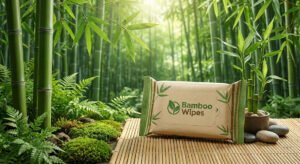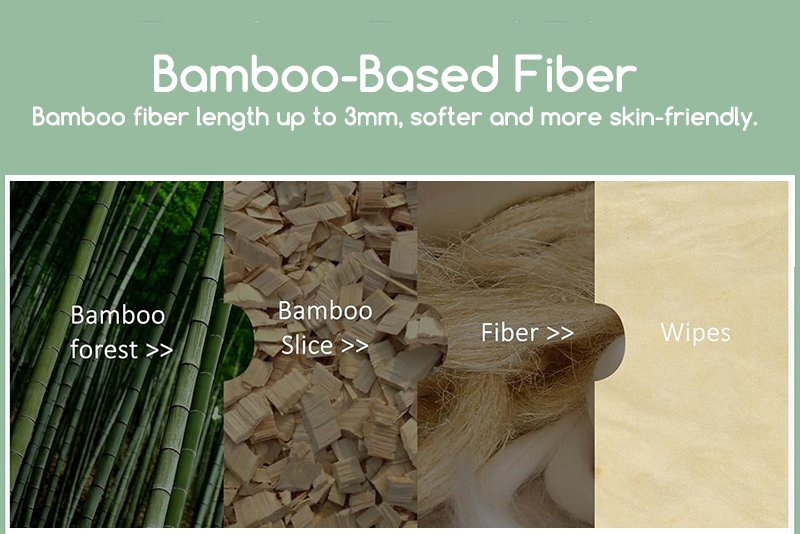Why the Sudden Hype Around Biodegradable Wet Wipes?
Picture this: You’re cleaning up after a messy BBQ, reaching for a wet wipe, when guilt hits. “Wait, aren’t these terrible for the planet?” You’re not alone. Millions are ditching traditional wipes for biodegradable alternatives—and the shift is explosive. But why now? Blame it on climate anxiety, viral videos of marine life tangled in plastic, or just our collective “aha” moment. Let’s unpack this green craze.
The Dirty Truth About Traditional Wet Wipes
Hold up—aren’t all wipes bad? Not exactly, but most are eco-villains in disguise. Traditional wipes are like plastic bags masquerading as convenience. They’re often made with polyester or polypropylene (fancy terms for plastic) that take centuries to break down. Worse, they clog sewers (hello, “fatbergs”), choke oceans, and leave microplastics in your water. Imagine a spaghetti monster made of baby wipes—yikes.
What Makes Biodegradable Wet Wipes Different?
So, what’s the magic sauce? These wipes swap plastic for plant-based heroes like bamboo, cotton, or wood pulp. They’re designed to decompose in months, not millennia, under the right conditions. Think of them as the compostable coffee pods of personal care. But here’s the kicker: not all “biodegradable” claims are equal. Some need industrial composting; others break down in your backyard. Always check certifications like TUV or BPI!
5 Reasons Everyone’s Switching to Biodegradable Wipes
- Bye-Bye, Microplastics: Your face wipe won’t end up as fish food.
- Gentler on Skin: No synthetic fibers = happier cheeks.
- Septic-Safe (Mostly): They dissolve faster, sparing your pipes.
- Carbon Footprint Slimdown: Plant-based materials = fewer emissions.
- Parent Peace of Mind: Eco-friendly baby wipes? Yes, please.
The Market Boom: Stats Don’t Lie
The biodegradable wipe market is on fire, projected to grow by 12% annually through 2030. Why? Millennials and Gen Z are voting with their wallets. Brands like Caboo, Natracare, and The Cheeky Panda are dominating shelves, while even big players like P&G are jumping in. It’s not just a trend—it’s a lifestyle overhaul.
Confusion Alert: “Biodegradable” vs. “Compostable”
Here’s where things get murky. Biodegradable means it breaks down naturally… eventually. Compostable means it turns into nutrient-rich soil under specific conditions. So, your biodegradable wipe might still need an industrial facility. Moral of the story? Read labels like you’re decoding a secret message.
Challenges: Why Aren’t We All Using Them Yet?
Let’s get real—these wipes aren’t perfect. They’re pricier (though prices are dropping), and some don’t pack the same punch as chemical-laden rivals. Plus, misinformation runs rampant. “Can I flush these?” Spoiler: Nope. Even biodegradable wipes belong in the trash unless stated otherwise.
The Future: What’s Next for Green Wipes?
Innovation is wild. Scientists are tinkering with algae-based fibers and edible wipes (yes, edible). Meanwhile, retailers are ditching plastic packaging for dissolvable wrappers. The future looks like a zero-waste utopia where your wipe plants a tree. Far-fetched? Maybe. But hey, so were electric cars 20 years ago.
Conclusion: Small Swap, Big Impact
Switching to biodegradable wipes isn’t just a trend—it’s a tiny act of rebellion against waste culture. Sure, they’re not flawless, but progress over perfection, right? Next time you grab a wipe, ask: “Is this helping or haunting the planet?” Your choice matters.
FAQs
1. Can I flush biodegradable wet wipes?
Nope! Even biodegradable wipes can clog pipes. Trash ’em unless the package explicitly says “flushable.”
2. How long do they take to decompose?
Between 1-6 months in composting conditions. Landfills? Much slower—so compost if you can!
3. Are they pricier than regular wipes?
Yes, but prices are dropping as demand grows. Think of it as a $2 monthly donation to Earth.
4. Do they work as well as traditional wipes?
Most do! Look for ones with natural cleansers like aloe or essential oils.
5. Where can I buy them?
Amazon, Whole Foods, or eco-stores like Package Free. Even Target’s hopping on the bandwagon!
There you go—a deep dive into the world of biodegradable wipes without the jargon. Ready to make the switch? 🌍✨





